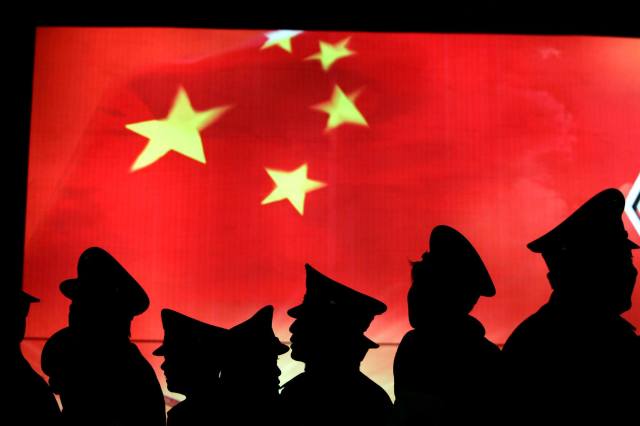Credit: China Photos / Getty

The Strait of Malacca is one of the busiest shipping lanes in the world. It runs between the Malaysia and Singapore on one side and the Indonesian island of Sumatra on the other. The reason why it’s so important is because it’s the shortest route between the Indian and Pacific Oceans – it’s how oil gets from the Middle East to the energy-hungry economies of East Asia, and how most of the industrial exports of the latter get to Europe and everywhere in between.
But what if there were a shorter route? One could be created by building a canal across Thailand’s Kra Isthmus. This wouldn’t be as big a shortcut as the Suez or Panama canals, but the savings would still be considerable – reducing the trans-oceanic journey by 1,200 kilometres. Vast sums in fuel costs could saved on every trip – hundreds of thousands of dollars for the biggest vessels.
Of course, the civil engineering challenges would be daunting – not to mention the financial, environmental and political obstacles. However, this is just sort of game-changing investment that China’s Belt and Road initiative is designed to take on.
In a piece for Foreign Policy, Bruno Maçães speculates as to what else the initiative might have achieved by by 2049 (the hundredth anniversary of People’s Republic):
“A bridge crossing the Caspian Sea—125 miles, from Azerbaijan to Turkmenistan—has made road transport between Europe and China fast and easy, changing old mental maps that separated continents… In Africa a high-speed railway connects the two coasts, traversing Djibouti, Ethiopia, South Sudan, the Central African Republic, and Cameroon in under twenty hours. Trade between Africa, Asia, and South America increasingly uses this route.”
Even if the Belt and Road ends up skipping the very most ambitious challenges, it will lay down a new global infrastructure whose impact will go well beyond commerce alone.
When European explorers, starting with the Portuguese, established global trade routes from the 15th century onwards, they didn’t just move cargo around the world – they mobilised money, power and culture. Furthermore, because they controlled the routes, they controlled the terms of exchange (in their own favour, of course).
Trade, as much as the military might that followed in its wake, was instrumental the global triumph of the West. It would therefore be naive not to see the historical significance of what China is building beyond its borders today.
It’s certainly not lost on Bruno Maçães, though he’s not predicting the total eclipse of the West:
“The West will diminish in reach and influence, but 30 years from now it will continue to offer a powerful alternative to the Belt and Road Initiative, even if it may also be expected to evolve in response to the Chinese challenge.
“The problem for now is to determine the core of the new Chinese world picture and identify the main traits which it will come to impress upon the whole. The Belt and Road Initiative may never become universal—just as the West never became universal—but in some areas it will rule unimpeded, and different shades of influence will be felt everywhere.”
So, what he calls “the new Chinese world order” will coexist with the western world order – both competing and cooperating with it, but most crucially providing a distinct alternative.
Some of the differences are obvious – not least in respect to democracy and human rights. Others may be less apparent to us, but are also of great importance. In many ways Chinese society is more dynamic that our own, for instance with respect to technology:
“The Chinese made 50 times more mobile payments in 2016 than U.S. consumers did, tripling to $5.5 trillion in China while U.S. payments only grew 39 percent, to $112 billion. China’s order will be one of fast economic and social change, much more at ease with its costs than Western societies at present. Visions of the future will be its main currency and symbols of distinction.”
Fifty times more mobile payments – that’s an astounding gap. But it’s not just the extent of digitisation that separates China from the West, but the framework of values within which it’s taking place. Maçães points out that the Chinese model of governance rejects the “Enlightenment ideals of transparency and public knowledge.” Everything that we fear about the control of big tech over our data, our privacy and our lives, also applies in China, but to the nth degree – and not just China, but everywhere that the Chinese way of doing things is likely to prevail.
He argues that the West will have to “evolve in response to the Chinese challenge”, but how? Beyond the bits of government that specialise in such things, and the western businesses and the occasional NGO with a direct interest – who is engaging with these great matters?
Not public opinion, that’s for sure. Compare the high profile reaction to the Trump travel ban with the response to the Chinese government’s repression of the Muslim Uighur minority. One can condemn Trump’s actions and language, but why does the mass internment and ‘re-education’ of perhaps one million Chinese Muslims excite so little attention?
Western progressives are almost exclusively focused on abuses of power perpetrated within, and by, the West; and, in their minds, that can be justified on the assumption that, whatever happens elsewhere in the world, it is the West that is the ultimate driver of global change.
But if that were ever true, it isn’t anymore.










Join the discussion
Join like minded readers that support our journalism by becoming a paid subscriber
To join the discussion in the comments, become a paid subscriber.
Join like minded readers that support our journalism, read unlimited articles and enjoy other subscriber-only benefits.
Subscribe